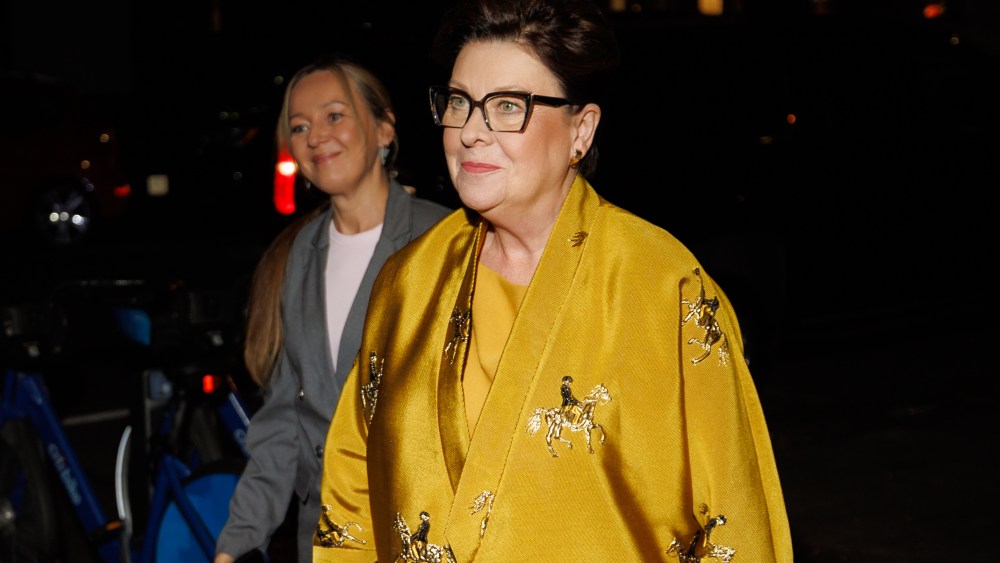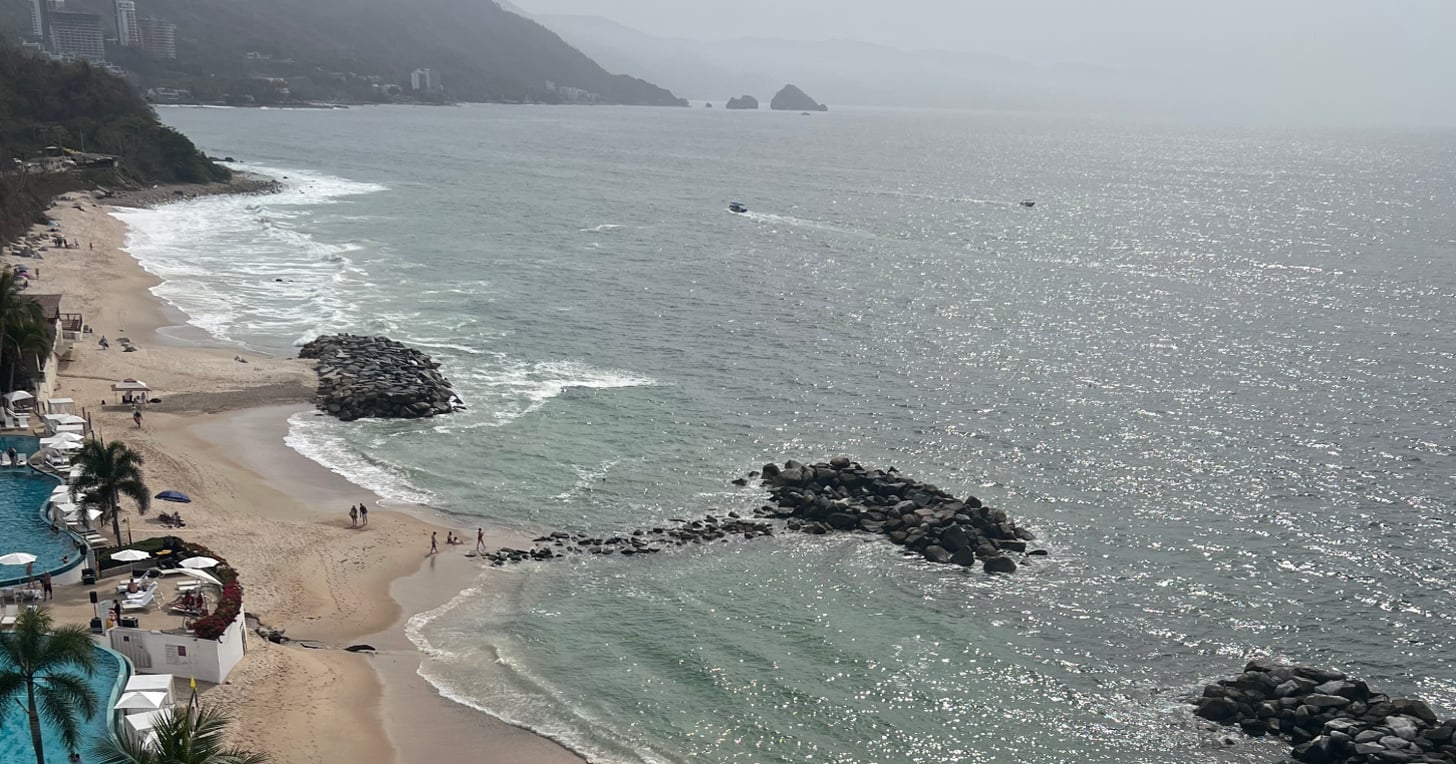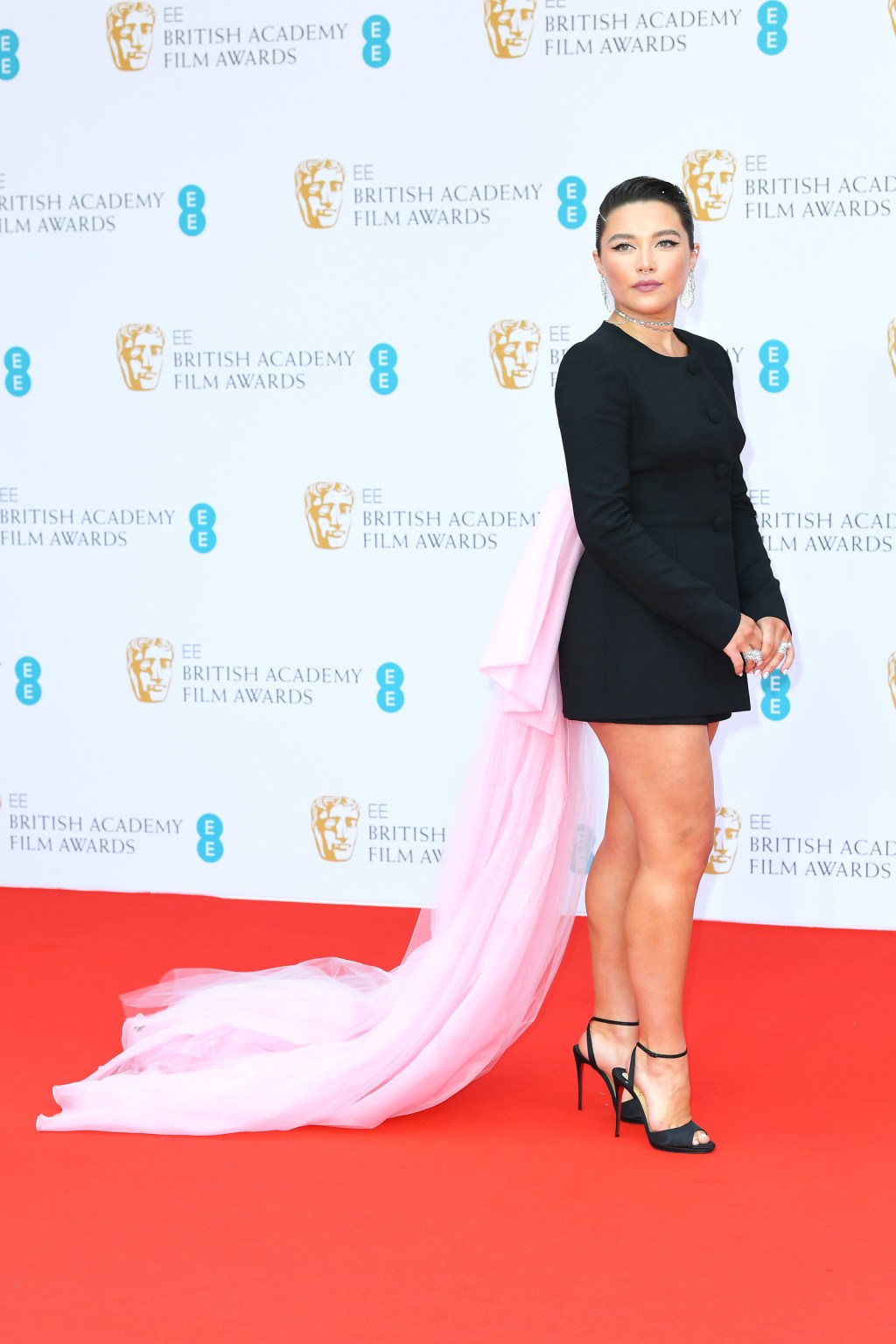Estonia President Alar Karis and First Lady Sirje Karis attracted an Estonian-leaning crowd Wednesday night at The Canvas SoHo for what was billed as a fashion diplomacy event.
After clearing the electromagnetic wands of security outside of the West Broadway boutique, upward of 80 people mingled during the cocktail party. The well-lit shop features more than 40 global brands that align with the United Nations Sustainable Development Goals. Although the gathering had a lengthy moniker, “Building Transatlantic Bridges: A Celebration of Creative Collaboration between Estonia and the United States,” the official remarks were relatively brief.
Beforehand, Alar Karis preferred not to discuss design, aside from saying “I just wear one suit and that’s it.” He said he was there on behalf of his wife.
You May Also Like
Small Estonian flag decals and American flag ones were available to guests as a reminder of fashion diplomacy. Most of the guests could easily identify Estonia on a map. Bordered by Russia to the east and Latvia to the south, the tiny Baltic country is bound by the Gulf of Finland in the north, the Baltic Sea in the west and Lake Peipus in the east. Estonia shares its maritime borders with Finland and Sweden. There is room for growth for Estonian designers, who are targeting the U.S. market. Last year Estonia exported $832,980 worth of non-knitted or non-crocheted apparel to the U.S.
The first lady said, “Our land may be small on the map. Our spirit is not,” adding that true artists and designers carry creativity far beyond its borders. They draw inspiration from the calm of our nature, from sanctuaries and traditions. What they give is design that is passionate, timeless and truly Estonian. For us, design is a story, a memory, a vision. It is a way to express identity and to share identity with the rest of the world.”
From her perspective, fashion, as a soft power, is language without words that tells stories, builds trust and creates beauty that crosses every border. “I would like to thank you for your broad vision and education to bring Estonian design to an international audience, providing a platform where our designers can shine and be seen,” she said.
“For such a small country like Estonia,” which has approximately 1.37 million residents, giving exposure to Estonian fashion brands and seeing so many people connect through fashion is “extremely important,” according to Marilin Tammsaar, whose husband Rein is Estonia’s ambassador to the U.N. Currently, The Canvas SoHo offers six Estonian labels, which can be identified by a decal of the country’s flag on the store’s floor. “Everybody speaks about fashion diplomacy, but just as a concept — blah, blah, blah. But we are actually doing something — events and bringing designers here to give them this opportunity,” Tammsaar said.
Canvas’ co-chief executive officer Devin Gilmarti spoke of the importance of fashion diplomacy and the idea that creation can unite nations. Marilin Tammsaar agreed, “Fashion is a connector of people and cultures. I don’t think that is recognized enough. Today, seeing all of these people here, I am so happy. In the end, human connection is the most important thing in the world. It is why we are here, why we exist and why we were born.”
As of May, there were approximately 54 fashion designers in Estonia, which was nearly 2 percent more than in 2023.
Among the guests was Kerry Bannigan, cofounder of the United Nations Fashion and Lifestyle Network. Also in the crowd was one of the first lady’s relatives, Aleksander Seeman, who was visiting New York with his wife Merlin. The couple live in Estonia’s capital city of Tallin. She said, “We have an expression in Estonia, ‘You only need two people to get close to the president.’”
In addition to talking about family matters with the first lady, the Seemans wanted to check out New York City’s retail scene a bit. A mergers and acquisitions and corporate lawyer by trade, Merlin Seemin started Symmetrista, a DTC company that specializes in asymmetrical bras, a year ago. Genetics, lumpectomies, mastectomies and breastfeeding are the primary reasons for unevenness, she said. Seeking funding and planning to expand with an emphasis on the U.S. market, the company aims to cater to 500,000 women in the next five years, Seeman said.



